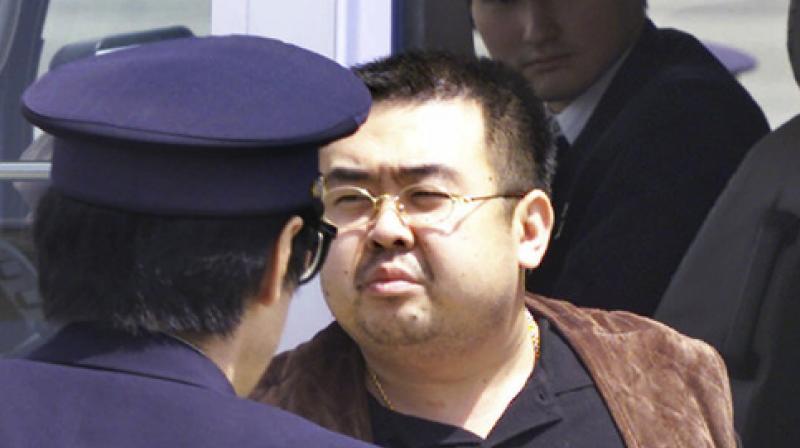One month after Kim Jong-Nam's killing: What we know

Kuala Lumpur: Monday marks one month since Kim Jong-Nam was murdered with a lethal nerve agent in Kuala Lumpur International Airport, sparking a fierce diplomatic standoff between Malaysia and North Korea.
Here is what we know so far about the progress of the investigation and the unfolding diplomatic crisis:
How did it all kick off?
CCTV footage from the Kuala Lumpur airport on February 13 shows two women approaching the exiled half-brother of North Korea's leader Kim Jong-Un and apparently rubbing his face with a cloth.
The 45-year-old died minutes later, according to Malaysian police, who found traces of the nerve agent VX on his face.
Indonesian Siti Aisyah, 25, and Doan Thi Huong, 28, from Vietnam, have since been charged with his murder and face the death penalty if found guilty.
Who is behind the attack?
Seoul has blamed Pyongyang, saying the regime engaged two outsiders to carry out the brazen Cold War-style assassination following a standing order from leader Kim Jong-Un to kill a man he may have seen as a potential rival.
North Korea has never confirmed the identity of the victim, who was carrying a passport bearing the name of Kim Chol when he was attacked.
What's the latest with the investigation?
Malaysian investigators are seeking seven North Korean suspects, four of whom left Malaysia on the day of the murder while the other three are apparently hiding in North Korea's embassy in Kuala Lumpur, according to the police chief.
Malaysia on Friday finally confirmed the victim's identity, but refused to say whether authorities had obtained a DNA sample from next-of-kin to do so in line with their previous demands.
Police chief Khalid Abu Bakar said concerns "for the security of the witnesses" prevented him from revealing further details.
Why hasn't Kim's family come forward?
Given North Korea's history of brutal purges, it is not surprising that Kim's wife and children, who were living in exile in the Chinese territory of Macau, staged a vanishing act after the murder. There are fears his 21-year-old son, Kim Han-Sol, could be targeted next.
In what may be the first comments by the family however, a young man identifying himself as Han-Sol appeared in a video that circulated last week. The claim was later verified by South Korea's intelligence agency.
But he did not reveal his whereabouts or offer to claim his father's body.
What else we don't know
A month on, mystery swirls around the assassination.
The two women have told diplomats that they were tricked into believing they were taking part in a TV prank show, with one of them reportedly saying she was paid less than $100 for her role.
Malaysian police have rejected their claims.
The use of VX nerve agent -- a toxin so deadly it is classed as a weapon of mass destruction by the UN -- has also raised questions, particularly since the women did not come to serious harm despite handling it.
The method used to identify Kim's body also remains unknown, with police refusing to confirm whether they used DNA samples, dental records or fingerprints.
The New Straits Times reported that investigators identified Kim by matching the pattern of 21 moles scattered across his face with photographs taken when he was alive.
Why did diplomatic ties deteriorate so quickly?
Pyongyang and Kuala Lumpur had unusually strong links for years but tensions flared rapidly when North Korea denounced the Malaysian investigation as a smear job, insisting that the victim most likely died of a heart attack.
The allegations prompted Malaysia to expel outspoken North Korean ambassador Kang Chol.
Pyongyang retaliated by formally expelling his Malaysian counterpart, who had already left for consultations, and later barred Malaysians in North Korea from leaving the country, triggering a tit-for-tat move by Kuala Lumpur.
Nine Malaysians -- three embassy staff and six family members -- remain trapped in Pyongyang while hundreds of North Koreans are reportedly stranded in Malaysia.
What happens next?
Malaysia hopes to open negotiations with North Korea this week to secure the release of its citizens and resolve its impasse with Pyongyang over the fate of the body.
Malaysia has so far refused to hand over the body to Pyongyang, saying it will only release it to a family member.
As the stalemate drags on, the two women are due to appear in court on April 13, two months after the assassination.

